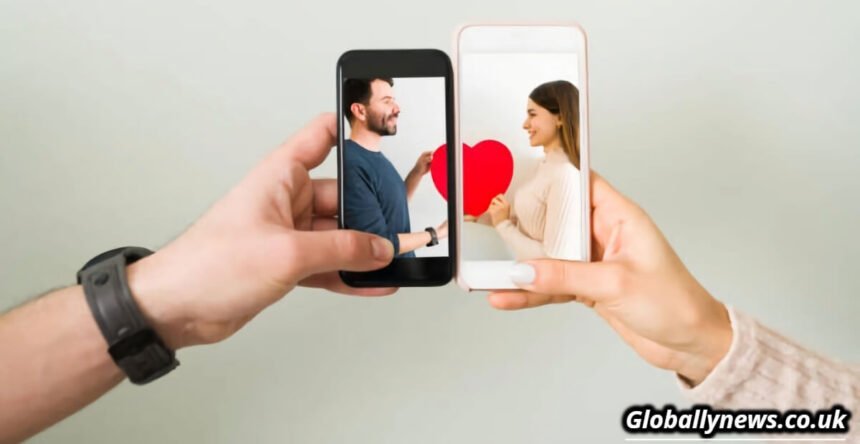The majority of social media users (81%) see others posting about their relationships at least sometimes. It happens often for 46%. Additionally, 23% of those whose partner uses social media say the latter’s interactions on these platforms have made them feel unsure or jealous. This percentage reaches 34% among those aged 18-29.
This article explores how excessive social media use harms romantic relationships, especially by creating distance between partners.
Phubbing: The Silent Relationship Killer
51% of US adults who are married, live together, or are in a committed relationship say their partner is sometimes or frequently distracted by their cell phone when they try to talk. Additionally, 40% are at least sometimes bothered by how long their partner spends on their cell phone.
This phenomenon, known as phubbing, involves snubbing someone in a social setting by being preoccupied with one’s phone. For instance, a person who continues to scroll through social media or check messages during a face-to-face conversation is effectively phubbing their partner.
People who have experienced phubbing often report a reduced sense of emotional connection, less trust, and diminished empathetic concern in their relationships. Over time, this behavior can lead to increased jealousy between partners, decreased relationship satisfaction, and an overall weakening of the bond. In a world increasingly reliant on digital communication, addressing phubbing is critical for nurturing emotional intimacy.
Orbiting: The Lingering Shadow of Social Media
Prying eyes on Snapchat, X, and Instagram from a prospective partner can be exciting, but if they are unrequited, one can feel confused and outright angry when an ex is looking on. Orbiting in dating has a pronounced impact on people who are tethered to social media apps. For those invested in such one-sided interactions, orbiting can feel like an emotional rollercoaster. There’s a rush of validation when a specific person views your posts, but this fades quickly if no tangible connection develops. Over time, the disappointment of an unfulfilled relationship starts to weigh heavily. The truth becomes unavoidable: relationships must either move offline or end altogether.
Orbiting can also impact committed relationships, as partners may feel hurt or neglected if their significant other devotes attention to virtual connections over real-life intimacy. Recognizing and addressing this behavior early can prevent misunderstandings and foster stronger connections.
Lower Relationship Satisfaction: A Growing Concern
Social media has fundamentally changed the way couples interact, often diminishing the quality of their time together. A recent study found that the length of time spent on Instagram daily negatively correlates with relationship satisfaction. In essence, more time scrolling equates to lower happiness levels in romantic relationships.
Another factor contributing to dissatisfaction is social media’s facilitation of interactions with potential romantic interests. Engaging in infidelity-related behaviors—such as flirting or maintaining secretive communications—can significantly increase relationship ambivalence. Trust, a cornerstone of any healthy partnership, erodes when such activities are discovered, leading to feelings of betrayal and uncertainty about the relationship’s future.
To foster a healthier dynamic, couples should prioritize intentional time together, free from the distractions of screens. Open conversations about boundaries and expectations for social media use can help mitigate misunderstandings and restore harmony.
Unrealistic Expectations and Mental Health Impacts
Social media often presents a highly curated version of reality. Users frequently compare their relationships to the meticulously crafted narratives and flawless photos they see online. This can lead to unrealistic expectations about romance, causing unnecessary pressure on real-world relationships.
Moreover, overusing social media is linked to increased rates of depression and anxiety, which can strain relationships. A 2023 study revealed that over 80% of participants were frequently exposed to social media. Among them, nearly half experienced depression, about 23% dealt with anxiety, and close to 20% suffered from both conditions. These mental health struggles can hinder effective communication, emotional availability, and intimacy between partners.
By recognizing the limitations of social media as a reflection of reality, couples can work toward building more authentic connections in their offline interactions.
FAQ Section: Managing Social Media Use in 2024
How can you manage social media use in 2024?
You can turn off social media notifications, move apps into folders, or install browser extensions that block or limit access on computers. Setting time limits using tools like Android’s Digital Wellbeing or iPhone’s Screen Time feature can also help reduce screen time.
Do social media create unrealistic relationship expectations?
Yes, social media fosters comparisons that can set unrealistic expectations for relationships. These comparisons are often based on idealized portrayals that don’t reflect the complexities of real-life dynamics.
Are they to blame for relationship breakdowns?
Excessive social media use can lead to depression and anxiety, which negatively affect relationships. Spending hours online rather than having meaningful conversations with a partner can exacerbate problems. To minimize harm, prioritize real-life interactions over virtual ones.
Do they make breakups harder?
Yes, social media creates an immutable record of memories, such as photos and shared posts. Seeing reminders of an ex can make the process of moving on more challenging. Social platforms often reactivate these virtual memories, prolonging the emotional impact of a breakup.
Conclusion: Building Stronger Connections Beyond the Screen
Social media has become an integral part of modern life, offering both opportunities and challenges for romantic relationships. While it can serve as a tool for connection, its excessive use often creates distance, fosters jealousy, and reduces relationship satisfaction. Phenomena like phubbing and orbiting highlight how digital habits can erode trust and intimacy, leaving partners feeling disconnected.
To counteract these effects, couples must actively prioritize offline interactions and establish boundaries for social media use. Engaging in meaningful conversations, setting mutual expectations, and focusing on quality time can help rebuild emotional bonds and create healthier dynamics. By fostering authentic, real-life connections, couples can navigate the complexities of the digital age while preserving the strength of their relationships.
